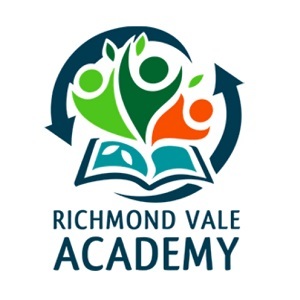
Die Richmond Vale Academy ist eine registrierte Non-Profit-Organisation auf St. Vincent und den Grenadinen, die es sich zum Ziel gesetzt hat, globale Erwärmung und deren Folgen zu bekämpfen. In der Schule werden Umweltaktivisten aus aller Welt ausgebildet, dort zu helfen, wo ihre Hilfe am dringendsten benötigt wird. Als Forschungs- und Bildungsinstitut setzt die Akademie sich für Armutsbekämpfung, Umweltschutz und Öffentlichkeitsarbeit zum Thema Klimawandel ein. Als wichtiger Bestandteil steht dabei die Umsetzung von Projekten zur nachhaltigen Landwirtschaft in der Region im Mittelpunkt.
Bitte beachte: Die Volunteer-Organisation dieses Projekts befindet sich auf einem kleinen englischsprachigen Inselstaat in der Karibik. Die Case Study liegt uns daher nur in englischer Sprache vor.
Saint Vincent and the Grenadines, after years of climate change related effects, was devastated by the severe weather disasters of 2010 and 2011. In response, Richmond Vale Academy (RVA) initiated a program called “The Saint Vincent Climate Compliance Conference 2012 – 2021” (CCC). This program has been a platform from which a springboard of hope has been built; to enable and empower several groups and communities. This program has accomplished widespread tree planting, teaching farmers sustainable agriculture, teaching climate change compliance to thousands of students, producing and distributing scores of climate change leaflets and newspapers, starting sustainable home gardens, setting up biogas digesters, impacting thousands of people in Saint Vincent and abroad.
Richmond Vale Academy works alongside the Government of St. Vincent and the Grenadines to reach the Climate Compliance goals.
Established in 2002, the Richmond Vale Academy (RVA) is a registered non-profit research and training institution situated in the Chateaubelair area of Saint Vincent and the Grenadines (SVG). Since opening, students from this country and from around the world have participated in courses centred on poverty reduction, environmental conservation and climate change awareness.
By educating people from St. Vincent and the rest of the world, Richmond Vale Academy aims to build the capacity, knowledge and confidence in its’ students. By achieving personal growth and development, future leaders of St. Vincent and of the world will take action for a more just and more sustainable world.
The primary concern is to create sustainable livelihoods for rural families and in doing this, to increase crop diversification practices, improving the resilience of farmers/ participants to climate change.
Much of the food available locally is imported and full of chemicals, evident in the synthetic additives now commonly placed in our food. This is neither environmentally or financially sustainable, or climate smart as much of this food is not healthy.
Home gardens are a crucial element to protect and promote biodiversity. Much commercial farming in St. Vincent is mono- culture and as this is not something that will change overnight, starting with home gardens and assisting those who are eager to change, are ways to get more people involved in sustainable farming practices, in order to create or develop their livelihoods.
St. Vincent still relies heavily on agriculture for rural livelihoods and development. At the same time local agricultural systems are adversely affected by land degradation and climate change, which threaten food production. Stronger winds, flash floods and drought also threaten our food production.
In getting persons to revitalize backyard farms as a means of reducing food imports, we are also faced with the issue of access to non- toxic fertilizer and supplementary products. Imported agrochemicals are costly and unsustainable, furthering the need to produce more food without imported chemicals and thus backyard gardens is a good way to promote sustainable agriculture.
More than 600 students from St. Vincent and all over the world counting 70 countries have been part of the program so far.
20 tons of garbage collected from beaches, rivers and villages along with teaching in schools and communities.
3.000 trees planted with all schools in St. Vincent and the Grenadines in a world wide TreeLympics winning two Gold Medals for being the most active country.
30.000 trees planted with farmers and communities.
5 Bio Gas Digesters installed with farmers, a school and families.
50 Organic Home gardens implemented with families.
The 8 mile La Soufriere country cross trail restored.
15.000 students across SVG have been taught hundreds of lessons.
20.000 climate compliance newspapers have been produced and distributed.
Furthermore, lessons on global warming and climate change have been given to 3.000 people visiting the Academy and to another 5.000 students and teachers at universities and colleges in Colombia, Guyana, Costa Rica, USA, England,
A book written about the first 5 years of the program was published early 2017: "Ready for Climate Change".
RVA’s vision of a “Climate Compliant” Saint Vincent falls under 3 key areas:
St. Vincent will be food compliant when:
An Energy Compliant St. Vincent:
To be ready for climate change:
For emergencies:
RVA is working hard to make the school a role model in sustainability. Within all the things we are doing towards a sustainable school we have an organic garden, biogas production and most recently have installed solar panels.
"At the end of the month, the excess energy we have sold is forwarded to the next month and accredited to the electric bill. This means that in the months where more energy is needed to charge the batteries, we can use this credit,” Headmaster Stina Herberg explained.
https://news784.com/local-news/st-vincent-school-to-use-100-renewable-electricity-by-may/
